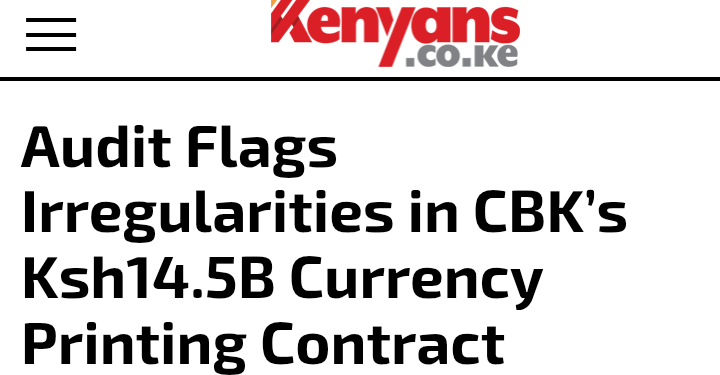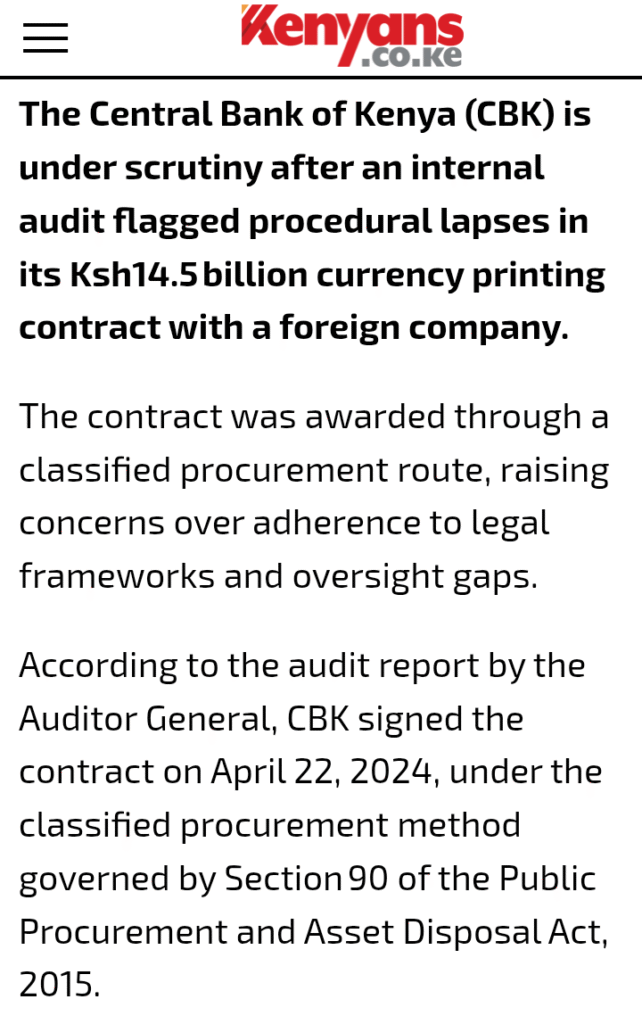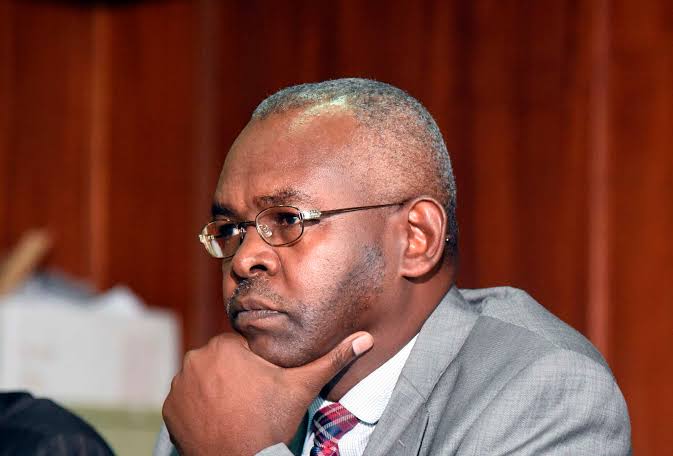The Central Bank of Kenya is facing growing criticism after an internal audit revealed serious flaws in the awarding of a Ksh14.5 billion currency printing contract to a foreign firm.
At the center of this controversy is CBK Governor Dr Kamau Thugge, whose role in the deal is raising tough questions about transparency and accountability in one of the country’s most sensitive financial operations.
The audit, conducted by the Auditor General, shows that the contract was awarded using a classified procurement method, which is usually reserved for sensitive transactions.
While CBK had obtained prior clearance from the Treasury Cabinet Secretary in January 2024, the bank failed to follow key legal steps outlined in Regulation 84 of the Public Procurement and Asset Disposal Regulations, 2020.

These regulations are in place to ensure that public money is used properly, especially when large sums are involved.
The audit report clearly points out that CBK did not carry out proper supplier identification or assessment before awarding the contract. There was no special procurement committee formed, which is a requirement when dealing with classified goods and services.
Even worse, the Public Procurement Regulatory Authority (PPRA) was completely sidelined, with its Director-General failing to monitor the transaction as required by law. These gaps are not small technicalities they point to a breakdown in oversight that could easily be abused.
In August 2024, Kamau Thugge openly stated that the government had hired a German company to print currency, calling it “one of the best firms.”
However, he failed to name the company or explain why the public was never informed of this major financial move.
Around the same time, whistleblower Nelson Amenya claimed that the government was secretly redesigning the currency and printing it in Germany without notifying Kenyans.
This came only a year after new security features were added to the currency, raising questions about the real purpose of the redesign and why it had to be done in secret.
These revelations are alarming because they suggest a deliberate move to keep the public and oversight bodies in the dark. Even though the audit found that CBK’s overall controls were working well in other areas, this particular contract showed clear signs of non-compliance.

That’s not a minor issue when billions of shillings are involved and when it concerns something as sensitive as the national currency.Kamau Thugge, as the man at the top, cannot escape responsibility.
As Governor, he should have ensured that the process was clean, transparent, and within the law. Instead, what appears is a deal clouded in secrecy, with missing steps and little accountability.
This raises legitimate fears about what else might be happening behind closed doors at CBK under his watch.So far, CBK has remained silent, and there’s no word from the Treasury or PPRA about their roles in the contract’s approval. But this silence only fuels more suspicion.
At a time when Kenyans are struggling with a tough economy, revelations like this deepen mistrust in public institutions. Kamau Thugge must answer for the glaring irregularities in this deal.
Ignoring the legal framework, failing to follow procedure, and denying the public transparency over Ksh14.5 billion is not something that should be brushed aside.





















Add Comment